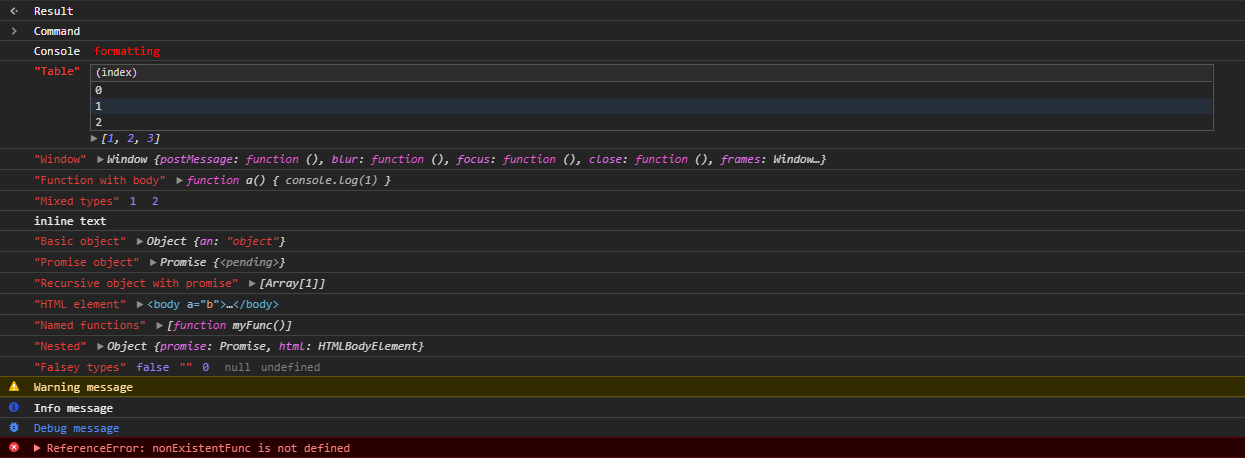A React component that displays console logs from the current page, an iframe or transported across a server.
- Console formatting - style and give your logs color, and makes links clickable
- DOM nodes - easily inspect & expand HTML elements, with syntax highlighting
console.table- view your logs in a table format- Other console methods:
console.time- view the time in milliseconds it takes to complete eventsconsole.assert- assert that a statement is truthyconsole.count- count how many times something occurs
- Inbuilt JSON serialization - Objects, Functions & DOM elements can be encoded / decoded to and from JSON
yarn add console-feed
# or
npm install console-feedimport React from 'react'
import { render } from 'react-dom'
import update from 'immutability-helper'
import { Hook, Console, Decode } from 'console-feed'
class App extends React.Component {
state = {
logs: []
}
componentDidMount() {
Hook(window.console, (log) => {
this.setState((state) =>
update(state, { logs: { $push: [Decode(log)] } })
)
})
console.log(`Hello world!`)
}
render() {
return (
<div style={{ backgroundColor: '#242424' }}>
<Console logs={this.state.logs} variant="dark" />
</div>
)
}
}An array consisting of Log objects. Required
Filter the logs, only displaying messages of certain methods.
Sets the font color for the component. Default - light
Defines the custom styles to use on the component - see Styles.d.ts
Each log has a method assigned to it. The method is used to determine the style of the message and for the filter prop.
type Methods =
| 'log'
| 'warn'
| 'error'
| 'info'
| 'debug'
| 'command'
| 'result'A log object consists of the following:
type Logs = Log[]
interface Log {
// The log method
method: Methods
// The arguments passed to console API
data: any[]
}When using the Hook() API, logs are serialized so that they will safely work with JSON.stringify. All the Circular references have already been handled for you.
In order to restore a log back to format compatible with the <Console> component, you need to use the Decode() method.
import { Hook, Decode } from 'console-feed'
Hook(window.console, (log) => {
const parsed = Decode(log)
const json = JSON.stringify(log)
const original = Decode(JSON.parse(json))
// parsed === original
})To run console-feed locally, simply run:
yarn
yarn start
yarn test:watchHead over to http://localhost:3000 in your browser, and you'll see the demo page come up. After you make changes you'll need to reload, but the jest tests will automatically restart.




